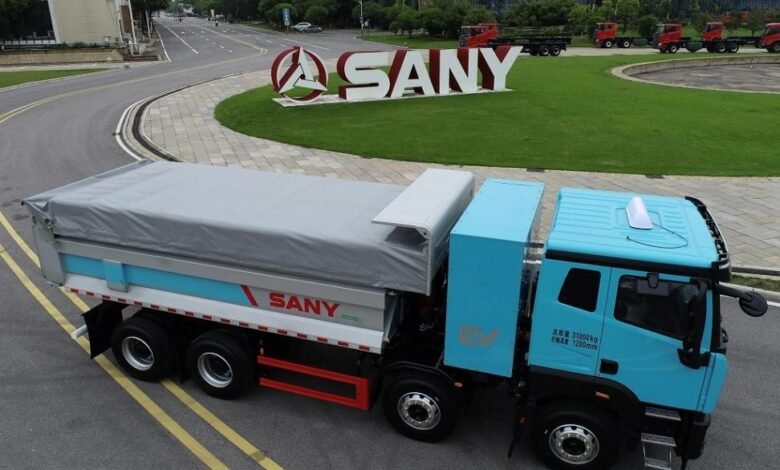Dump Truck Types and Their Applications in Construction

Dump trucks play a vital role in the construction industry, transporting materials from one site to another efficiently. These vehicles are indispensable for projects ranging from small landscaping jobs to massive infrastructure developments. Each type of dump truck serves specific purposes, ensuring that loads are moved safely and quickly. Understanding the different dump truck types can significantly impact project outcomes, making them faster and more cost-effective. Knowing the right truck type for your construction needs improves workflow and maximises investments. Here, we offer insights into various dump truck types and explore their unique applications in diverse construction settings.
Overview of Key Dump Truck Types
There are several kinds of dump trucks, each designed for specific tasks. Familiarity with these types enhances decision-making in selecting the most appropriate vehicle for a job.
Standard (Rigid) Dump Trucks
Standard dump trucks are the most common type found in construction. Equipped with a rigid, powerful chassis, this type is ideal for short-distance hauls. The hydraulic lift mechanism easily tilts the container to unload materials like gravel or sand. Most have a capacity ranging from 10 to 20 cubic yards, depending on the model and build. These trucks are often used in off-road construction sites because of their sturdy build and robust capabilities. Their efficient load-unloading features make them highly valuable for day-to-day tasks, significantly reducing labor time and effort.
Articulated Dump Trucks
Articulated dump trucks are known for their flexibility and off-road capabilities. Their unique feature is the hydraulic articulation joint between the cab and the payload area, allowing them to navigate rugged terrains with ease. These trucks are highly versatile, capable of carrying loads of up to 50 tons. Their adaptability makes them suitable for larger construction sites, especially where the terrain is challenging. Because they can maintain traction while manoeuvring through tight spots, they are often chosen for mining operations and large-scale construction projects. The articulated design also improves stability, decreasing the risk of tipping over compared to rigid trucks. This capability makes them essential in demanding scenarios where both reliability and agility are critical.
Side Dump, Transfer, and Specialty Types
Side dump trucks feature a design where the bed tilts to one side. This feature allows for rapid unloading of materials, useful for tasks requiring precise discharge control without repositioning the truck. Transfer dump trucks consist of a standard rig pulling a separate, movable trailer, increasing haul capacity without sacrificing maneuverability. Often used in highway and road construction, these setups maximise efficiency in transporting large volumes. Specialty dump trucks are tailored to unique tasks, such as high-capacity dumpers for mining or smaller, compact trucks for urban landscaping. Recognising specific project needs when choosing a dump truck type can drive substantial efficiency improvements. Each of these trucks delivers particular advantages that enhance their functionality in specialized applications.
Applying Truck Types to Construction Scenarios
Understanding how each dump truck type is applied in real-world construction enhances project efficiency. Let’s explore different use cases where choosing the right type streamlines operations and achieves better results.
Site Preparation & Earthmoving
Standard and articulated dump trucks are staples in site preparation for their effective material handling. In earthmoving, these trucks carry away excavated loads, such as soil, rocks, and debris, ensuring that the land is clear and ready for development. Their robust design handles various terrain types, making clearing tasks less labor-intensive. When preparing a site, dump trucks reduce manual effort by transporting and unloading soil and other materials swiftly. This automation significantly lowers overhead costs while boosting productivity rates. Their ability to easily navigate through construction obstacles ensures rapid project progression. The use of these trucks ensures the timely completion of groundwork, facilitating seamless transitions to subsequent building phases.
Road Construction & Aggregates
For road construction, both transfer and standard dump trucks prove invaluable due to their capacity and efficiency. These vehicles transport asphalt, gravel, sand, and aggregates essential for building stable road foundations. Their design withstands the demands of heavy loads and repetitive use over paved and unpaved surfaces, contributing to consistent construction quality. Transfer trucks are particularly useful for delivering materials over extended distances, leveraging their ability to hold significant volumes with interchangeable trailers. Their streamlined unloading process reduces turnaround time, increasing batch deliveries. In fast-paced road projects, these trucks expedite the supply chain, preventing delays in subsequent construction stages.
Urban Construction, Landscaping & Waste Removal
In urban settings, versatility is key. Standard and side dump trucks manage the transportation of landscape materials, including soil and stone, swiftly and efficiently. Their compact sizes are ideal for navigating congested city streets while executing tasks with precision. Side dump variants allow for exact material placement, reducing the impact on urban traffic flow. In waste removal, these trucks manage debris and refuse from demolitions, ensuring sites remain clean and orderly. Landscape projects benefit from their precise unloading capabilities, enhancing aesthetic elements without compromising infrastructure integrity. Their adaptability keeps urban environments functional and aesthetically equipped to meet various construction demands.

How to Choose the Right Type for Your Project?
Selecting the right dump truck hinges on various factors like project size, terrain conditions, load type, and budget. Begin by assessing the project scope—large-scale operations benefit from articulated trucks, while standard or side dump trucks may suit smaller tasks. Consider the terrain; rugged landscapes demand articulated models, known for handling off-road conditions. Evaluate the load characteristics; for bulky, heavy materials, the capacity of the transfer truck may be optimal. Additionally, factor in budget constraints and lifecycle costs, including fuel and maintenance demands. Balancing these attributes ensures that the chosen truck aligns with operational goals, maximising efficiency while minimising expenses. These considerations drive effective decision-making, leading to resourceful and profitable project outcomes.
Conclusion
Dump trucks serve as integral components in construction, tailored to meet diverse project demands through their varied types and capabilities. Employing the correct dump truck type aligns construction strategy with operational efficiency, supporting effective material movement. From preparing soil in rural landscapes to precision unloading in urban settings, knowing the strengths of each truck type fosters resourceful management and expedites project timelines. Informed choices in equipment selection result in optimal performance, enhancing productivity and offering a competitive edge in the construction sector. Always evaluate project needs against truck features, ensuring that investments drive successful, sustainable project completions.





